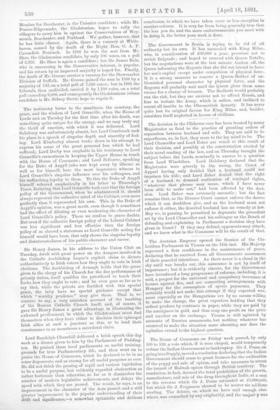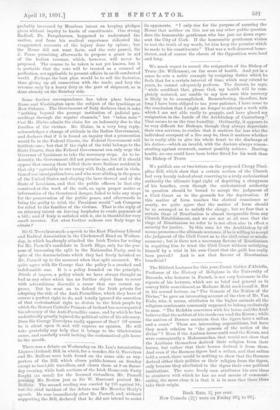The House of Commons on Friday week passed, by only
160 to 130, a vote which, if it were obeyed, would temporarily reduce the Indian Government to bankruptcy. Sir J. Pease, on going into Supply, moved a resolution declaring that the Indian Government should cease to grant licences for the cultivation of the poppy and sale of opium, and take measures to arrest the transit of Malwah opium through British territory. The resolution, in fact, decreed the total prohibition of the growth, manufacture, and sale of the drug throughout India, at a cost to the revenue which Sir J. Pease estimated at £3,000,000, but which Sir J. Fergusson showed to be nearer six millions sterling. The debate, on which we have said enough else- where, was unmarked by any originality, and the majority was
probably increased. by Members intent on keeping pledges given without inquiry to knots of constituents. One strong Radical, Dr. Farquharson, happened to understand the matter, and from his medical experience ridiculed the 'exaggerated accounts of the injury done by opium ; but the House did not want facts, and the vote passed, Sir "3. Pease promising afterwards to propose a grant in aid of the Indian revenue, which, however, will never be proposed. The course to be taken is not yet known, but it is probable that the vote will be treated as a counsel of perfection, not applicable to present affairs in an ill-conducted world. Perhaps the best plan would be to sell the factories, thus giving up all connection with the trade, and levy the revenue only by a heavy duty at the port of shipment, as is done already on the Bombay side.



































 Previous page
Previous page